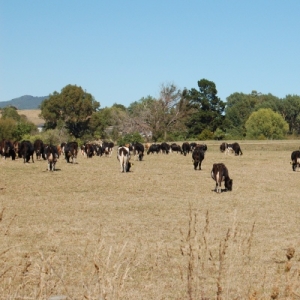Federated Farmers adverse effects spokeswoman Katie Milne says she is amazed that Westpac economists believe the drought may have no effect on the economy because of rising dairy prices.
When this drought does fully break, its effects will be felt for two seasons or more as herds are rebuilt and pasture repaired, she says. The most recent rains may have taken the pressure off some areas, but others remain in a precarious state.
"Farmers I speak to in the areas that have been dry remain concerned," says Milne.
"If it rains in central Auckland or Wellington, it does not mean it is raining in Taihape. That said things are looking up in the Bay of Plenty but they remain tough in Hauraki-Coromandel.
"The West Coast of North Island, from South Auckland all the way north, remains pretty dry. I can add to that the North Island's East Coast, parts of the Waikato and the Central North Island. While Manawatu is out of the woods, Rangitikei remains firmly gripped by drought.
"We seem to be getting through the worst of it on the South Island's West Coast but Southland and Otago could use a good soaking followed by sunshine."
If winter comes early, we will swing from one set of conditions not conducive to pasture growth to another, she says.
Stated comments by Westpac that the drought may have no effects on the economy would be news to Federated Farmers Rotorua dairy chair Bryan Osborne, Milne says. The drought has cost his farm 30,000kg of milksolids or around $180,000. "We are not using this to get the violins out, but to challenge Westpac over its claim this drought will cost New Zealand nothing," she says.
"Milk production out of the North Island has dropped like a stone and you cannot export what you are not producing, no matter what price you get.
"The effect on sheep and beef farms is also dire. Capital stock numbers have been cut to the bone and these animals provide the basis for a farms future crop. Red meat also happens to be New Zealand's number two export.
"Unlike cows which went to the bull in October or November, ewes have only been going to rams in the last two months, during the peak of the drought, to get in lamb. This will affect fertility, so sheep farmers will likely be hit with lower lambing percentages next spring.
"Farms are biological systems and not a factory. For sheep and beef farmers capital stock and stocking numbers will need to be rebuilt. That could take several seasons so this drought's after effect will be felt for years," Milne says.



















